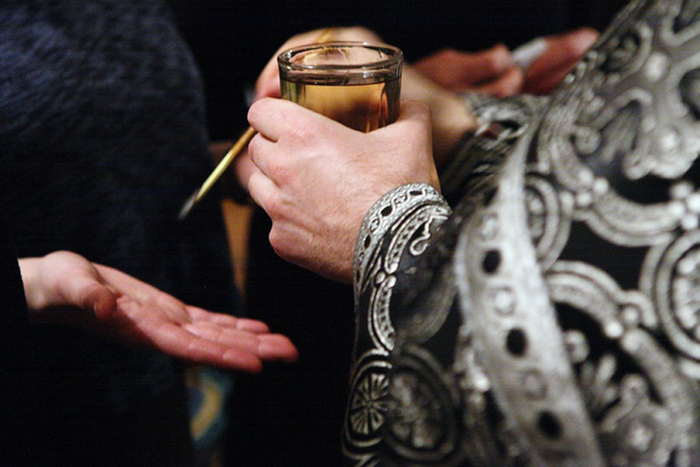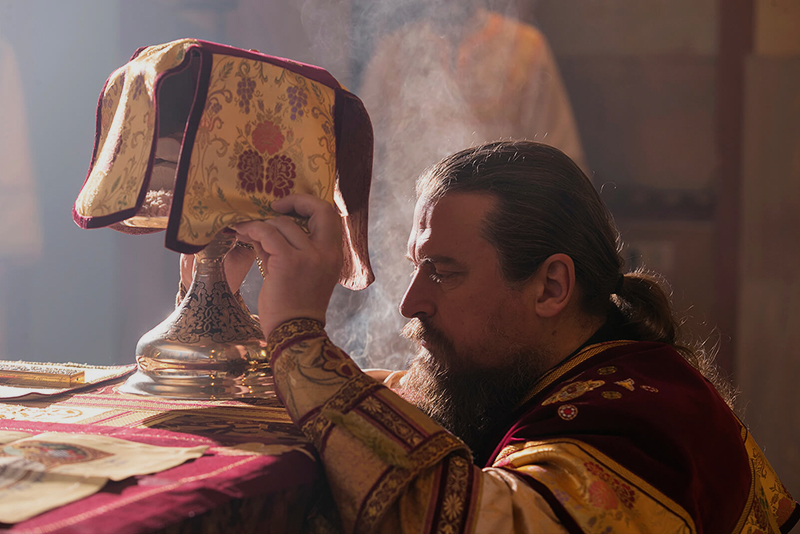
Priest Alexander Bogdan
For some reason, that is a very common opinion now. It turns out that if a person forgets to name a sin at a confession, he will have it forgiven during another Sacrament. Some people even started to think that it is possible to hide their sins in confession: “I will go to the Unction anyway, and all this will be forgiven.” People who think so are very wrong.
Do we only receive forgiveness for the sins we mentioned at the confession?
Think for yourself: are we always able to list all our sins (usually since the latest confession)? Sometimes it is difficult to keep everything in your memory. In that case, you can write everything down on paper and read it out during your confession. However, when we make a list of our sins, we may not remember all of them anyway. Even if we keep a diary and write everything down in detail, there are sins we may not pay attention to or count them as such. It turns out that no matter how hard you try, you can’t name all the sins at a confession.
What can we do about unnamed sins?
Metropolitan Hilarion (Alfeev) said that during one of his lectures at the Moscow Theological Seminary he expressed the idea that all sins are forgiven in confession. One student objected and said that he would consult the works of the Holy Fathers and prove the opposite. After six months of work in the library, this student visited Vladyka Hilarion and said, “You were right: confession washes away all sins.” If someone sincerely repents, he receives forgiveness for all his sins. If any unnamed forgotten sin bugs your conscience, you usually confess it the next time, don’t you?
For the sake of certainty, let us cite the words of absolution prayer that a priest says after a confession, May our Lord and God Christ Jesus by the mercy of His love absolve thee from thy sins; and I, His unworthy priest, in virtue of the authority committed to me, absolve thee and declare thee absolved of thy sins in the name of the Father, and of the Son, and of the Holy Spirit. Amen.
L. Dvorkin
It is clear that healing can be both physical and spiritual, but where does this emphasis on forgotten and unrepentant sins come from? Obviously, it has to do with institutionalization of theology and Western influence. Western theology expects a person to give an account for every sin, regardless of whether he remembers it or not. He must be punished for every sin, and thus divine justice will be upheld.
This kind of formal approach has never been the norm in Orthodox theology. It is also obvious that Unction is one of the least understood Sacraments. People generally regard it as a sacrament for the dying, because in ancient times it was intended only for terminally ill people. The idea that this Sacrament is performed on the dying person has led to the idea that it helps them to get rid of forgotten sins. Certainly, there is some Catholic influence in it: a person wants to die completely clean so as not to have any “unforgiven” sins left.
In a similar fashion, Russian princes took monastic vows before their deaths to die with a clear conscience. This is where such a preoccupation with the forgotten sins comes from: it stems from an unjustified fear of a Christian person who goes to confession and communion that suddenly there are sins which he does not remember.
We can say that this shows our distrust of God, because it is clear that the Lord does not count our sins. People pray that God reveals their sins to them… If there is a sin that we do not remember and it is important for us to remember it, the Lord will remind us. Repentance is not a listing of sins, it is metanoia, that is, a complete change of mind, the transition from being unable not to sin, through being able not to sin, to being unable to sin. The Lord’s mercy is greater than our own personal memory. If we look at it this way, then perhaps, the notion of remission of forgotten sins is a later invention and has no direct relation to the Sacrament of Unction.
Translated by The Catalogue of Good Deeds



